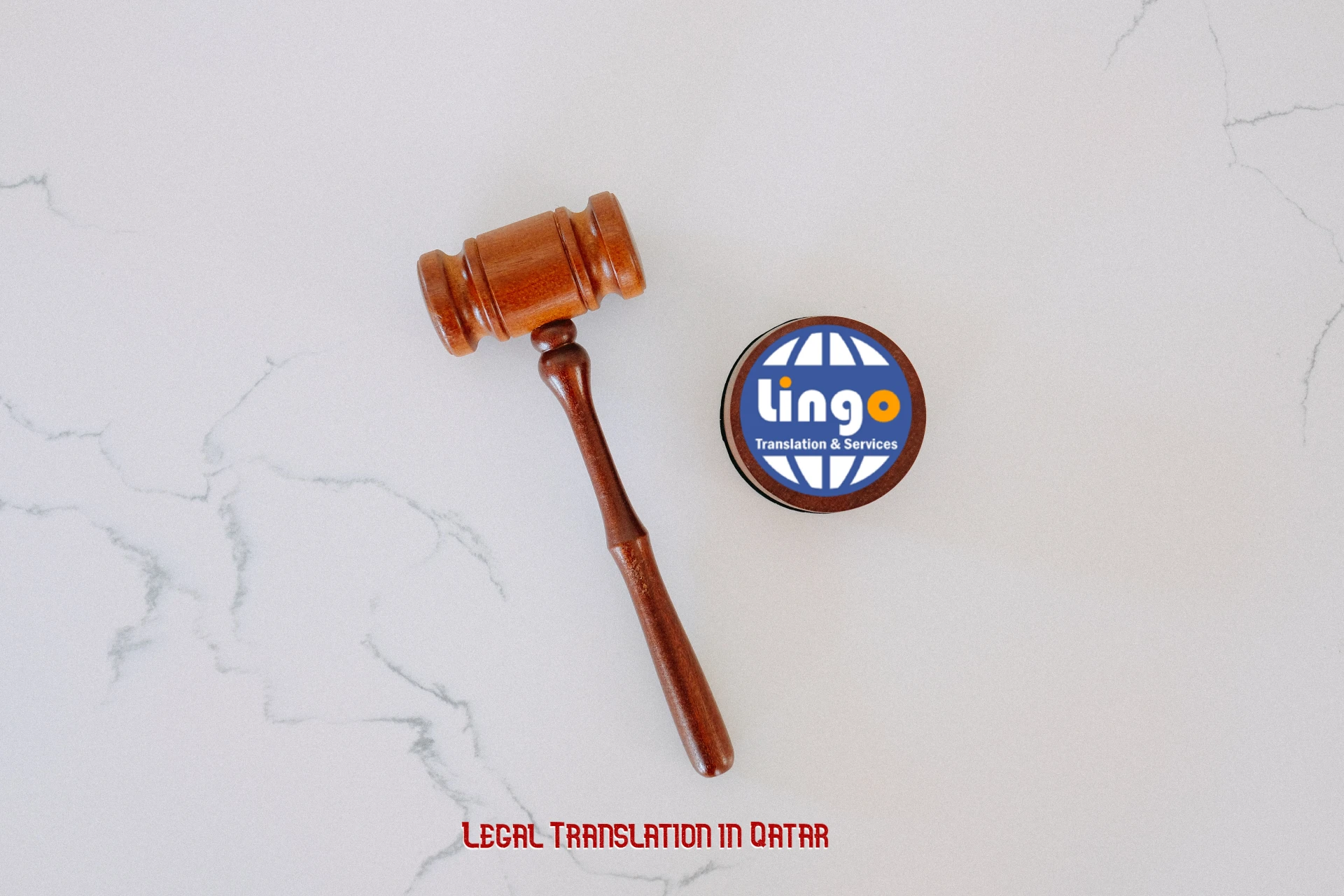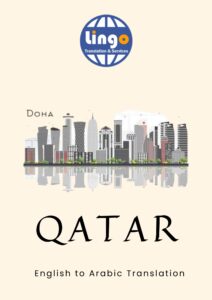Navigating Legal Frontiers: The Vital Role of Legal Translation in Qatar (خدمات الترجمة القانونية)
In the rapidly globalizing world, international borders have become increasingly porous, inviting a flow of ideas, businesses, and people like never before.
Amidst this nexus of global connections, one incredibly crucial aspect often goes unnoticed: legal translation, especially when it comes to non-English-speaking countries such as Qatar.
For nations like Qatar, where the primary language is Arabic, navigating the legal frontiers becomes intriguingly challenging, significantly so in terms of both internal governance and international relations.
Thus, understanding the legal codes, rules, and contracts that are central to Qatar’s functioning necessitates specialized legal translation services, making this an indispensable domain of the global business industry based in Qatar.
Located in the vibrant city of Doha, at Office No. 25, 3rd Floor, Al-Malki Business Center, Al Joan St, Doha, this article seeks to shed light on the instrumental role of legal translation in Qatar. Click Here>>>
Legal System
Law is a dynamic field, subject to constant evolution and reinterpretation. Even within a single legal system, the interpretation of legal texts may vary.
Now, imagine overlaying these existing complexities with an entirely distinct language. This brings us to the field of legal translation, which involves translating legal documents from one language to another.
Much more than a mere conversion of words, legal translation requires a comprehensive understanding of both languages, as well as the respective legal systems.
Legal terminology differs from regular language, often presenting unique definitions and connotations that must be noticed during translation.
Business Collaborations
Qatar, an Arabic-speaking country, possesses a legal system that straddles both civil law and Sharia law.
In the context of Qatar’s pivotal geopolitical role, significant business collaborations, and large expatriate population, legal translation becomes non-negotiable, crucial not only for internal governance but also for foreign negotiations and contracts.
Given the harsh penalties for violating Qatar’s law, accurate interpretation and translation of legal texts also come into play, ensuring clarity for non-Arabic-speaking individuals and businesses.
For these reasons, legal translation holds an unprecedented significance in this fast-paced, cosmopolitan Arabian nation.
Role of Legal Translation in Qatar
The role of legal translation in Qatar can be understood from various perspectives—first, the view of corporate governance.
The economies of the Middle East are making strides, with Qatar leading the way in many aspects. Much of this economic activity revolves around contracts, agreements, government regulations, and other legal instruments.
With a majority of these documents drafted in Arabic, the role of a legal translator becomes paramount.
Legal translators bridge the language gap between businesses in Qatar and overseas, helping transactions proceed smoothly by accurately interpreting and translating contracts and other required documents.
Second, from the perspective of international relations. Qatar, being a key global player, engages in numerous international agreements and treaties.
These involve detailed legal texts, which often consist of non-English languages. For these documents to be mutually understood by all parties involved, specialized legal translation is pivotal.
With potential implications for national security or economic prosperity, it is critical that these translations accurately capture the intent and stipulations of the original documentation.
Understanding of Qatari Laws
Third, from the perspective of the expatriate population in Qatar. With the country’s expat population exceeding the native Qatari populace, a significant portion of individuals require legal services for personal matters, such as immigration, property rentals, and even litigation.
For these individuals, an unmistakable understanding of Qatari laws is crucial. Translating these stringent and comprehensive laws becomes a necessity, a task served by legal translation companies.
Role of Legal Translation
In addition, legal translation also plays a crucial role in court proceedings. Courtroom proceedings in Qatar are conducted in Arabic.
Therefore, effective communication between a non-Arabic-speaking litigant and the court necessitates translations.
Certified translators fulfill this vital task, ensuring that justice is preserved in translation but instead is delivered efficiently and effectively.
A deep understanding of the legal systems involved, bilingual fluency, and specialization in legal terminology is crucial in legal translation.
Precision, consistency, and the ability to convey the nuanced meanings of legal texts are factors that mark the difference between an adept legal translator and an averagely competent one.
Comprehensive Understanding of the Intricacies of Law
Combining all these components, there’s no denying that legal translation is anything but a straightforward task.
It requires not only linguistic proficiency but also a comprehensive understanding of the intricacies of law, making it a specialized domain that is essential for Qatar’s thriving yet diverse legal landscape.
With more and more global ventures being initiated in Qatar, the demand for expert legal translation services is expected to soar, making this a promising field with high potential.
Conclusion
In conclusion, whether it’s to ensure seamless business transactions, uphold international relations, meet the needs of the extensive expatriate community, or enable effective courtroom communication in Doha, legal translation holds an indispensable position in Qatar.
This pivotal role is set to grow in the coming years as Qatar takes more confident strides in the international arena and its cosmopolitan composition evolves further.
Leveraging the expertise of seasoned legal translators and their nuanced understanding of both languages and legal systems can significantly enhance the overall efficiency and efficacy of the Qatari legal landscape.





